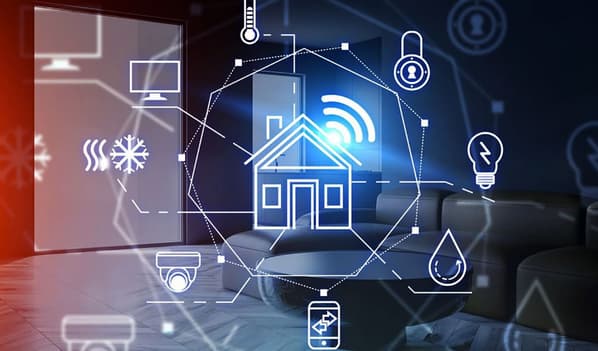Automation rapidly transforms daily life in Italy, from smart homes to digital services. As technology advances, Italian households embrace smart devices that offer convenience, security, and efficiency. At the same time, the digital world is evolving, with users expecting instant solutions that streamline their experiences online. Whether automating routine tasks at home or accessing quick services through digital platforms, automation drives a shift toward greater ease and efficiency.
The Rise of Home Automation in Italy
Home automation has gained significant momentum in Italy as more households turn to smart technology to enhance their everyday living. The demand for devices that simplify tasks, increase energy efficiency, and improve security is rapidly growing.
One of the main drivers of this shift is the desire for energy efficiency. Italians are increasingly focused on reducing their energy consumption, and smart home devices help achieve this by offering more precise control over household systems.
Home security is another area where automation is playing a crucial role. Many Italian households are adopting smart security systems that offer remote monitoring, motion detection, and real-time alerts through mobile devices.
As the adoption of home automation continues to grow in Italy, it’s clear that these technologies are becoming an integral part of modern living. They offer a combination of convenience, security, and sustainability that reshapes how Italian households function in an increasingly connected world.

Automation in the Digital Space: Instant Services
Beyond the home, automation transforms the digital landscape, especially when providing instant services. Italian consumers increasingly expect fast, seamless digital experiences across various platforms, from e-commerce to financial services.
In financial services, automation has become essential. Italians are looking for quicker ways to manage their finances, and digital banking platforms have responded by implementing automated solutions for everything from account management to instant payments. This is also reflected in the rise of siti non AAMS prelievo immediato, online casino platforms that allow users to withdraw their winnings instantly. These sites offer a smooth and fast user experience, responding to the growing demand for instant financial transactions in Italy’s online gaming industry. For more information about these platforms, users can visit Visionifestival, a website that provides details on non-AAMS casino sites, including those offering instant withdrawals. Automation in these systems ensures that processes are secure, efficient, and able to meet user expectations for speed.
Another significant growth area is entertainment platforms, where automation simplifies content delivery and enhances personalization. Streaming services use AI algorithms to curate personalized content recommendations, while automated subscription management makes it easy for users to adjust their services on demand. This approach reflects the growing preference for instant access to tailored digital experiences.

The Future of Automation in Italy
The future of automation in Italy promises exciting advancements as the country embraces new technologies across various sectors. In the smart home industry, we can expect even more AI and machine learning integration to create truly autonomous homes. Future smart home systems will be able to learn user behaviors, predict their needs, and automatically adjust lighting, heating, and security systems without any manual input.
In the digital space, automation will expand beyond instant services to include more advanced features such as AI-powered financial management tools. Additionally, the continued rise of instant digital services like those seen in online casinos and banking will push more industries to adopt automation to meet customer expectations for speed and convenience.
The entertainment sector will also experience deeper integration of AI, with automated content curation becoming even more personalized and interactive. AI will analyze user preferences to offer tailored content and immersive experiences through virtual and augmented reality, blurring the lines between physical and digital entertainment.
As automation advances, there will also be a growing focus on ethical considerations and regulation. Italy will likely see increased government involvement in creating standards for privacy, security, and fair use of automated technologies. This includes safeguarding user data and managing the ethical implications of AI and automation in both home and digital platforms.
Overall, Italy’s commitment to innovation will continue driving the adoption of automation in all areas of life, from how people live in their homes to how they engage with digital services. As the country embraces these advancements, the future of automation looks set to deliver smarter, faster, and more intuitive solutions that meet the evolving needs of Italian consumers.
